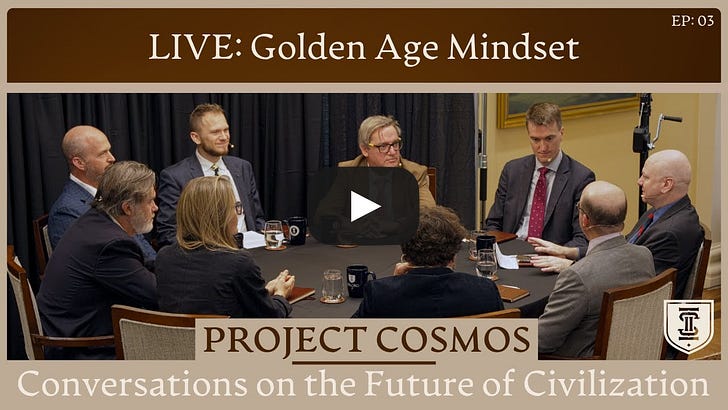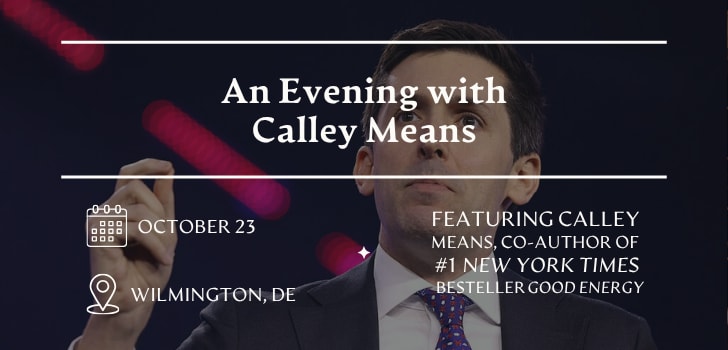|
 |
Considering the Family and the Workplace
Intercollegiate Review | Conservatism's sharpest voices, curated weekly. ISI's weekly newsletter brings you the best in serious conservative thought.
From Home to HR?
In the second half of the twentieth century, American women entered the workforce in large numbers. Many social scientists have commented on how this shift affected America’s economy by altering incentives for employers and employees. Others have written about how the change shaped the culture at home for American families. But far less attention has been given to how women’s rise in the workforce transformed the industries themselves.
In an article for Compact, Helen Andrews discusses the effects of this “Great Feminization” on industries such as law, academia, and medicine. Women are no longer newcomers to these fields; they are now the majority at law schools, medical schools, and the college-educated workforce at large. At the same time, Andrews says, these industries are increasingly characterized by feminine traits such as “empathy over rationality, safety over risk, and cohesion over competition.”
Andrews links the feminization of American workplaces with the rise of wokeness and cancel culture, which she argues are manifestations of female group dynamics. If Andrews’s “Great Feminization” thesis is true, then wokeness will persist as long as these demographic trends continue.
Read Andrews’s full argument about the feminization of America’s industries here.
|
Revaluing Care Work
Human beings are naturally interdependent creatures. We start and typically end our lives in a state of total dependence on others. In adulthood, we often spend great portions of our time caring for others as well. Yet this essential care work is frequently treated as a mere backdrop to the “real” business of life—individual achievements celebrated and rewarded by the consumer economy.
In an article for First Things, Mary Harrington reviews two new books that seek to bring attention to the often invisible care work that sustains human society: The Dignity of Dependence by Leah Libresco Sargeant and The Care Economy by Tim Jackson. Written by authors from distinctly different ideological backgrounds, both books argue that care work is essential to human flourishing. The authors grapple with the dismissive and shameful ways in which care work is often treated.
Harrington’s article situates the devaluing of care work within a broader philosophical context. She suggests that our culture’s failure to value care work stems from a modern rejection of Aristotle’s metaphysical ideas of formal and final causes.
Read the rest of Harrington’s review here to learn more about the metaphysics of the care work crisis.
Compendium
Every article we feature here is available to read for free. Articles from paywalled publications are available through gift links.
Oren Cass on the case for reciprocity to preserve U.S. power in Foreign Affairs (available by submitting your email address).
Nathan Pinkoski on Alasdair MacIntyre and the rise of postliberalism in Compact Magazine.
Gabe Guidarini on Pat Buchanan’s legacy in The American Conservative.
Louise Perry on the need to restore communal identity in The New York Times.
Blake Dodge and Katherine Dee on the historian using her Substack to promote partisan ideology in Pirate Wires.
Ross Douthat interviews Amy Coney Barrett on originalism and liberty in The New York Times.
Evan Amato on the virtues of the Old World in Invictus.
Charlotte Stroud on Willa Cather’s warnings for modernity in Engelsberg Ideas.
Jennifer Block on the limits of “gender affirming care” in The New Atlantis.
Upcoming ISI Events:
If you enjoy what you’re reading here, we invite you to engage with ISI at one of our upcoming in-person events.
An Evening with Calley Means | October 23 | Wilmington, DE
Join ISI and the Brandywine Women’s Coalition for an evening with Calley Means, co-author of the #1 New York Times bestseller Good Energy: The Surprising Connection Between Metabolism and Limitless Health. Means will share insights on America’s rising chronic disease crisis and offer practical steps to reclaim lasting vitality.An Evening with Ann Coulter | November 8 | Wilmington, DE
Join ISI for a reception and dinner with best-selling author and nationally renowned columnist Ann Coulter. Coulter will deliver an unforgettable keynote address on the role of conservative media in shaping the national conversation, drawing on her illustrious media career.
Visit our events page on our website to see all upcoming events.
This week, from ISI’s Digital Media:

Project Cosmos returns with a special LIVE episode, filmed at ISI’s annual Homecoming Weekend in Wilmington, DE. This roundtable discussion features Phillip Blond, Rod Dreher, Mary Harrington, Michael Gibson, Dan McCarthy, Nathan Pinkoski, Kevin Roberts, Justin Shubow, and Johnny Burtka. The panel discusses what is required to foster a new Golden Age for Western civilization.
Subscribe to our YouTube channel for more content like this.
This week, from the Collegiate Network:
ISI’s Collegiate Network supports over 80 student-run publications across the country, empowering students to run independent college newspapers, magazines, and journals that report on important issues ignored by the mainstream media.
Don’t Wait to be Taught: A Workforce Expert on Why All Baylor Students Should Learn How to Use AI via The Standard
Workforce expert Brent Orrell urges college students to master AI before they’re left behind in the forthcoming “judgment economy.”In Catonem: Reject the Spirit of Cato via The Stanford Review
How Cato the Younger destroyed Rome in his pride and obstructionism, and a call for conservatives to reject “righteous defeat” in favor of humility and adaptability.Manhattan - the Wuhan of Kansas via The Free State Journal
A satire from Kansas University that criticizes Kansas State’s mediocrity.Galatea and Claude via The Harper Review
This article argues that the rise of “AI boyfriends” indicates a broader loneliness epidemic among America’s young people.Family is the Foundation via The American Postliberal
A defense of faith, virtue, and covenantal love as the foundation of personal dignity and civilization.
Visit our Student Journalism section to read more from the Collegiate Network.
Recovering the Past to Renew the Future
Classical education is experiencing a revival in America. Over the past decade, the number of classical K–12 schools nationwide has doubled, with enrollment expected to reach 1.4 million students in the next decade.
In this week’s Modern Age article, Heritage Foundation president and ISI trustee Kevin Roberts celebrates the national resurgence of classical education. He praises classical education’s emphasis on cultivating virtue in students, which is rooted in its vision of human dignity. This education also invites parents to play an active role in their children’s education, reclaiming their sacred duty to shape their children’s moral character.
Roberts suggests that classical education is not just good for students; it’s good for America. Through studying the great books and the writings of America’s Founding Fathers, students learn to appreciate the tradition that they have inherited. As Roberts writes, “Confronted with the weight of this civilizational inheritance, students come to respect their elders and desire to pass down that inheritance to a new generation.” By teaching students to value the past, classical education forms citizens capable of leading America wisely into the future.
Read the rest of Roberts’s article here on the Modern Age website.
Modern Age is ISI’s flagship publication. Visit modernagejournal.com and subscribe for a free daily newsletter.
“Education is an ornament in prosperity and a refuge in adversity.”
– Aristotle
Celebrate America’s semiquincentennial with ISI and help shape the next 250 years of our country. Your support of the America 500 Education Fund will help ISI reach, teach, and launch the next generation of conservative leaders. Visit isi.org/america500 to learn more.



